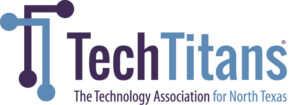IoT Roundtable Breakfast Series- March 24
Date and Time
Thursday Mar 24, 2016
7:30 AM - 9:00 AM CDT
7:30 am - 9:00 am
Location
UTD Design Studio
Synergy Park North Building (SPN)
3000 Waterview Parkway
Richardson, TX 75080
Fees/Admission
$10 members
$20 non-members
Website
Contact Information
Taylor Lopez
Send Email
Description
FYI: Please notice location of event has been changed!
"Distributed Sensor Networks and Machine Learning for Smart Cities Applications"
Featuring, Dr. David Lary, UT Dallas
Data driven decisions relating to issues of key societal significance (such as water and human health) are greatly facilitated by the synergistic use of sensor networks, remote sensing and machine learning. The use of machine learning allows us to learn from the past to inform the future and give our data a voice. Machine learning is an automated implementation of the scientific method, following the same process of generating, testing, and discarding or refining hypotheses. Machine learning provides an objective set of tools for automating discovery. It’s no surprise, then, that it’s revolutionizing science as much as it’s revolutionizing business.
About Dr. Lary David:
After completing his Ph.D. from the University of Cambridge Dr. Lary held positions at Cambridge University from 1991-2001, including being a faculty member and receiving a Royal Society University Research Fellowship. The thread running through all his research is the use of data driven insights using observation and automation to facilitate discovery. From 2001 to 2010 Dr. Lary worked with NASA as the first distinguished Goddard fellow in Earth Science, receiving six NASA awards for his research and technology development. In 2010 David joined the Hanson Center for Space Science at the University of Texas at Dallas where he has focused on Big Data and Machine Learning. He is about to deploy a network of airborne allergen sensors across Chattanooga, TN, for a smart city asthma and allergy early warning system. He is currently an adjunct professor in the University of Texas at Dallas Department of Electrical Engineering, Baylor University, Center for Astrophysics, Space Physics & Engineering Research, and in the School of Public Health, University of North Texas Health Science Center.

